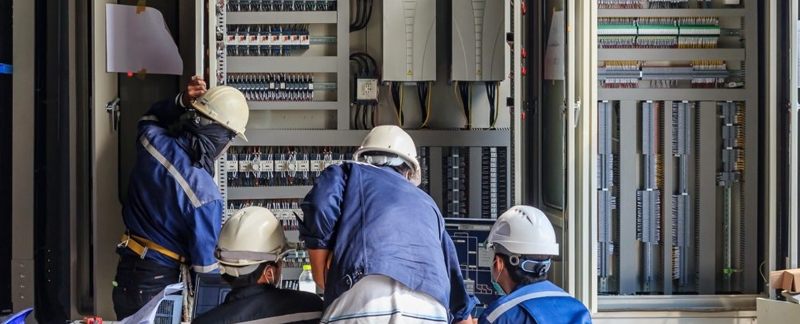Program Duration
Duration - 80 Hours
Accredited by
An ISO 9001-2015 Certified Company
Fexible Learning
In-center and online
Learn from
Industry Experts
Objective
HMI (Human Machine Interface) and VFD (Variable Frequency Drive) are both technologies used in industrial automation to control and monitor machinery and processes.
HMI : The objective of HMI is to provide a user-friendly interface that allows operators to interact with machinery and industrial processes in real-time. HMI systems typically include a touch screen display, which allows operators to monitor process variables, adjust settings, and diagnose issues.
VFD : The objective of VFD is to provide precise control over the speed and torque of electric motors. VFDs allow motors to operate at variable speeds, which can save energy, reduce wear and tear, and improve performance. VFDs are commonly used in applications such as HVAC systems, conveyor systems, and pumps.
Who Can Learn :
HMI and VFD technologies are primarily used in industrial automation, so anyone who is interested in working in this field can learn these technologies.
Control Engineers : Control engineers are responsible for designing, implementing, and maintaining control systems for industrial processes. Learning HMI and VFD technologies can be useful for control engineers as it allows them to design and implement more advanced control systems.
Automation Technicians : Automation technicians are responsible for installing, maintaining, and troubleshooting automation systems. Learning HMI and VFD technologies can be beneficial for automation technicians as it allows them to work with a wider range of systems and technologies.
Electrical Engineers : Electrical engineers are responsible for designing and implementing electrical systems for industrial processes. Learning HMI and VFD technologies can be helpful for electrical engineers as it allows them to design and implement more efficient and effective electrical systems.
Job Opportunities :
Control System Engineer : Control system engineers design and implement control systems for various industrial processes. They use HMI and VFD technologies to develop advanced control systems that optimize the efficiency of industrial processes.
Automation Technician : Automation technicians are responsible for installing, maintaining, and troubleshooting automation systems that use HMI and VFD technologies. They ensure that these systems are working efficiently and effectively.
Electrical Engineer : Electrical engineers design and implement electrical systems for industrial processes that use HMI and VFD technologies. They ensure that the systems are energy-efficient and comply with safety regulations.
Industrial Maintenance Technician : Industrial maintenance technicians are responsible for maintaining and repairing industrial equipment that use HMI and VFD technologies. They troubleshoot any issues that arise with the equipment and ensure that it is running efficiently.
Project Manager : Project managers oversee the implementation of HMI and VFD technologies in industrial automation projects. They ensure that the project is completed on time and within budget.
Frequently Asked Questions:
1. What is HMI?
HMI stands for Human Machine Interface. It is a graphical interface that allows humans to interact with machines or systems, such as industrial control systems, through visual representations.
2. What is VFD?
VFD stands for Variable Frequency Drive. It is an electronic device that controls the speed of electric motors by varying the frequency and voltage of the power supplied to the motor.
3. What are the benefits of using HMI and VFD technologies in industrial automation?
Using HMI and VFD technologies in industrial automation provides several benefits, including improved energy efficiency, increased productivity, enhanced safety, and reduced maintenance costs.
4. What skills are required to work with HMI and VFD technologies?
To work with HMI and VFD technologies, you need to have a strong understanding of electrical and electronics engineering, as well as experience with programming languages such as ladder logic, structured text, or function block diagrams. Knowledge of industrial automation processes and equipment is also beneficial.
5. How can I learn about HMI and VFD technologies?
There are several ways to learn about HMI and VFD technologies, including online courses, tutorials, textbooks, and hands-on training programs. You can also attend workshops and seminars to learn more about the latest developments in this field.
Course Curriculum :
» Architecture of HMI Working with Basic Operator Panel (BOP)
» Configuring HMI
» VFD commissioning
» MPI Communication & Configuration
» I/O field devices interfacing
» Alarm & Event Management
» PLC, SCADA & VFD Interfacing
» Operator command control
» PLC, HMI & VFD Interfacing
» Data Logging
» PLC-HMI Interfacing
» Working with Control Panel
» Different motor control techniques
» Architecture of VFD


